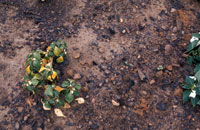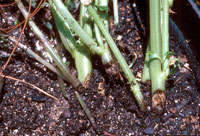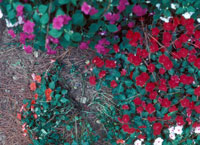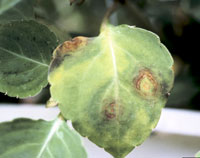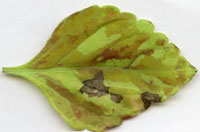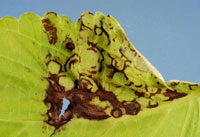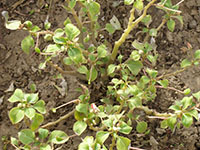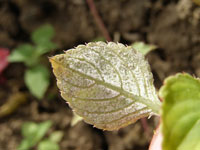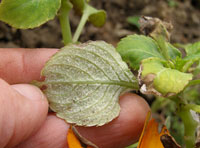Extension > Garden > Diagnose a problem > What's wrong with my plant? > Annuals and Perennials > Impatiens > Stunted plant
Impatiens > Whole plant > Stunted plant
1 of 3
Root Rot
Pythium spp., Rhizoctonia solani
- Leaves turn yellow and wilt
- Plants are stunted
- With Rhizoctonia sp., the base of the stem may turn brown and crack
- Roots have brown sunken areas and lack root hairs
- The outer root tissue is easily removed leaving behind thin, stringy root cores.
- Disease favors cool, wet soil with poor drainage
- Lab test necessary to distinguish between Rhizoctonia and Pythium Root Rot
- More information on Rhizoctonia root rot
- More information on Pythium root rot
2 of 3
Impatiens Necrotic Spot Virus (INSV)
- Symptoms are extremely variable
- Stunted growth and wilting may occur
- Leaf distortion; ringspots or black spots on leaves and stems; blackish/purplish coloration along leaf veins
- Tip dieback and in some cases entire plant will collapse
- Lab test needed to identify INSV since it is difficult to diagnose on symptoms alone
- More information on INSV
3 of 3
Downy Mildew
Plasmopara obducens
- Leaves turn pale green to yellow and may curl slightly downward downy white to fungal growth on underside of leaves
- Plants become yellow in color and stunted
- Infected leaves prematurely drop from the plant leaving a barren stalk with few leaves
- Disease favors cool, wet weather
- More information on Downy Mildew



